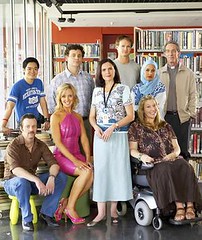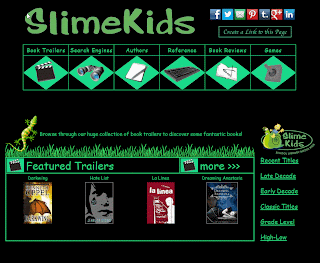Professional learning in the library team.
Last week our Library Teaching Team attended Learning 2.013 conference in Singapore. It led me to reflect on the power of shared professional learning. So often schools send one member of a team to attend a conference with the mandate to report back to their team at school. Does that work? One person is inspired, but can they pass that enthusiasm on to others to effect change?
When our Principal at AIS agreed in 2011 to send all 5 of our teacher librarians to 21st century learning @Hong Kong, I vowed to show him in 6 months' time what we had learnt and achieved as a result of that conference. I did that. That experience was transformational for our team. We were overwhelmed by the ideas that had bombarded us, but it inspired us all to action. It put us on the same page, with a shared vision of what we could do, why we should do it.
There has been some change in our team but again I believe this shared experience at Learning 2.013 is a powerful agent for consolidating our vision and practice.
In our Library Teaching Team meetings we have an agenda item called Spotlight. It is an attempt to move our discussions on from library management to teaching and learning. We showcase tools and ideas that we have tried and want to share. It keeps us all in tune with what is happening in each others libraries and good use of technology, resources and web 2.0 tools. I'm wondering if we can take that one step further. I think there is an opportunity in a team our size to extend the idea of learning from each other. Could we invite each other into our classes to observe or participate? In the library we are so used to an open classroom - can we extend this to each other? It will take trust and openness, but what a dynamic professional learning environment that could be and the conversations that would come out of it.
What about our non-teaching staff in the library?
This has recently been a discussion point in our library network ISLN. How can we provide professional learning opportunities for our library staff? Jacqi Makselon at Tanglin Trust School has led this initiative in encouraging her non-teaching staff to visit other libraries in our network, including AIS, to establish connections and build a dialogue between school library staff. This is a great initiative that is sure to grow as reciprocity is already under way. In Australia, the wonderful work of the School Library Association of Victoria includes professional development days for library technicians and assistants. Is this something our ISLN network could do?







